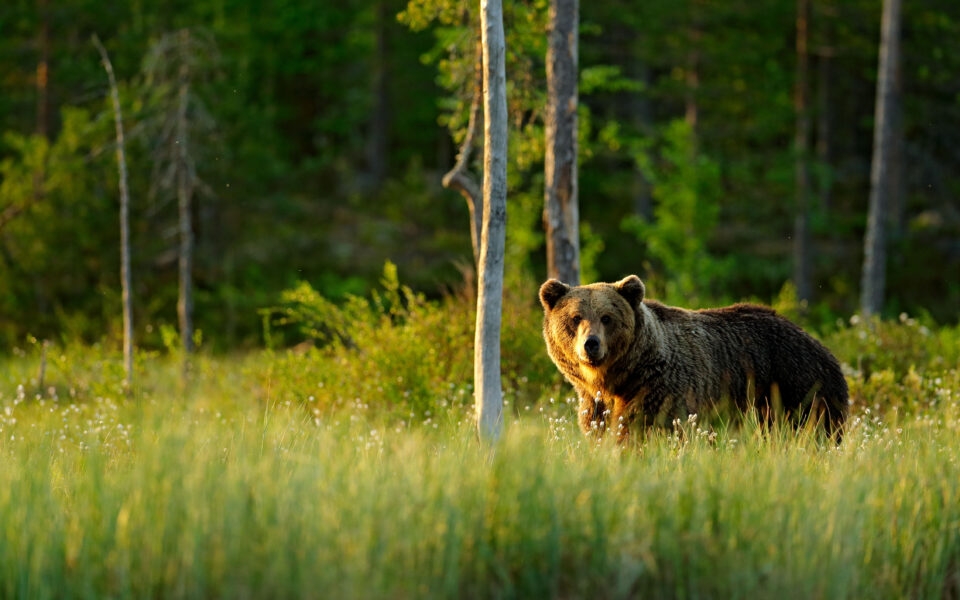The total brown bear population in the country’s three national parks – Pindos, Prespes and Rodopi – was 485 individuals in 2020-2021, and there is significant genetic diversity in all three areas.
These are the main findings of the genetic analysis carried out by the Department of Veterinary Medicine (Laboratory of Microbiology and Parasitology) and the Department of Public and Integrated Health (Laboratory of Molecular Biology and Genetics) of the University of Thessaly, the environmental organization Callisto, North Pindos National Park, Prespes National Park and Rhodope National Park.
Within the framework of the program “Improving the coexistence of man and bear in 4 national parks of Southern Europe” (ARCPROM), 10 brown bear-specific microsatellite markers were identified and studied in order to assess the distribution of the population in the Pindos, Prespa and Rhodope regions.
The goal was also to evaluate genetic diversity of the brown bear living in Greece, and explore a possible bear connection between the three regions. The genetic analysis used brown bear hair samples collected in 2020-2021 using the hair trap method, in accordance with the activity of bears observed during this period. A total of 472 samples were collected and analyzed: 96 from the Prespa National Park, 170 from the Northern Pindos National Park and 206 from the Rhodope National Park.
According to the conclusions, the population of Pindos is genetically isolated, while the corresponding populations of Prespa and Rodopi show mutual “mixing”. In addition, there is a high degree of inbreeding in Rhodopi and Prespes, which in the long term may lead to a reduction in the genetic diversity of the population. In Pindos, the brown bear population is more stable than in Rhodopes and Prespes.
In a conversation with the Athens-Macedonian News Agency, Associate Professor of the Department of Public and Integrated Health Maria Satra and Professor of the Department of Veterinary Medicine of the University of Thessaly Charalambos Billinis emphasize that by repeating the action that will take place in 2023 and using the same methodology, more reliable conclusions will be drawn as in in relation to genetic characteristics, and in relation to actions for the conservation and management of the brown bear population in Greece.







More Stories
Crete "shaking" – two earthquakes this morning
Ecological… tombstones
Landslide on Santorini